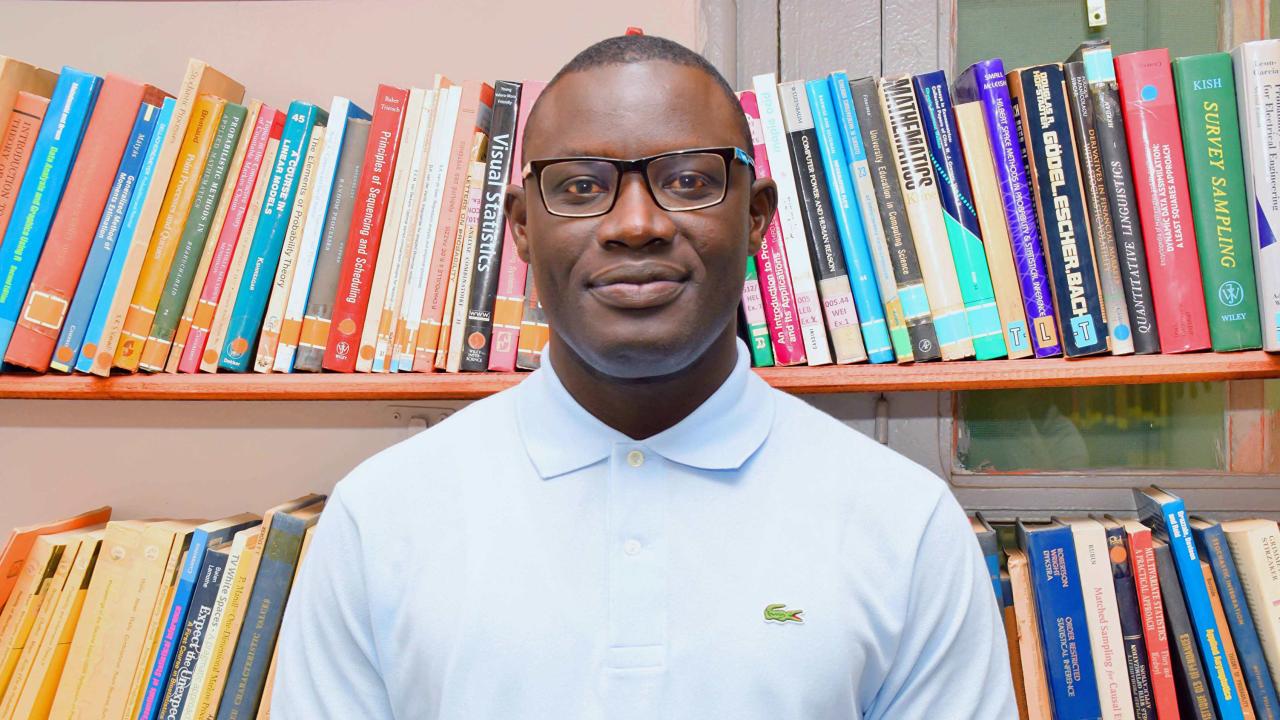
The Ramanujan Prize is offered yearly to young mathematicians from developing countries through a collaboration between ICTP, the Department of Science and Technology (DST) of India, and the International Mathematical Union (IMU). Awardees must be outstanding mathematicians who are under 45 years old and come from a developing country. The Prize carries $15,000 in cash, which may be used to support the recipient’s research.
The 2022 winner, Senegalese mathematician Professor Mouhamed Moustapha Fall, was presented with the Prize on Thursday 13 April at ICTP (view the ceremony on ICTP's YouTube channel). Fall is the president of the African Institute for Mathematical Sciences (AIMS) in Senegal. He received his postgraduate diploma at ICTP, earned a PhD in mathematics from SISSA (Trieste) and held postdoctoral positions in Belgium, Germany and Italy, before returning to Senegal at AIMS. Fall supervises several research students, belongs to UNESCO’s International Scientific Board of the International Basic Science Programme (IBSP), and recently joined the IMU Executive Committee for the period 2023-2026.
Growing up in Senegal, Fall discovered his talent for mathematics early. “Like many others, my interest in mathematics stemmed from the fact that I was quite fast in solving calculus problems at primary school, together with the continuous support of my teachers at the time,” explains Fall. “My love for mathematics continued to grow thanks to my exposure to mathematics lecturers with great pedagogical skills.”
Fall’s research partly focuses on the field of partial differential equations (PDEs). “PDEs may be used to address problems arising from a range of fields such as epidemiology, climate science, and finance in mathematical terms,” says Fall. “Some of the PDEs we study come directly from the modelling of real-life phenomena. I’m also interested in geometrical questions that concern the shapes of fluids in containers in the absence of gravity.”
This year marks the return of the Ramanujan Prize to Africa after ten years. “This prize means a lot to me, as it is aimed at "young" people who are "from developing countries". A young mathematician from a developing country might be very rare, particularly in the case of African countries, where research is often neither well developed nor acknowledged. There is a regard for long-term career achievement in these countries, but this does not relate to young scientists. The fact the prize comes back to Africa after so long, and thanks to me, is very rewarding, and this is due to collaborations with other researchers from both developed and developing countries.”
The funding attached to the prize will be used to further science in Senegal and beyond. “I plan to use much of this funding to provide public talks, seminars and distribute prizes in as many high schools in Senegal and other countries as I can reach,” adds Fall. “This will allow me to motivate young students, and particularly girls, to stay in science. Of course the cash award will not be enough to achieve this, but I could also raise funds from others who share my belief that there is a critical need for skilled young scientists in the developing world.”
Fall also expands on the directions his research could take. “Uniqueness and non-degeneracy, regularity theory, non-local operators, and the Schiffer conjecture will be keywords for the future.”
















